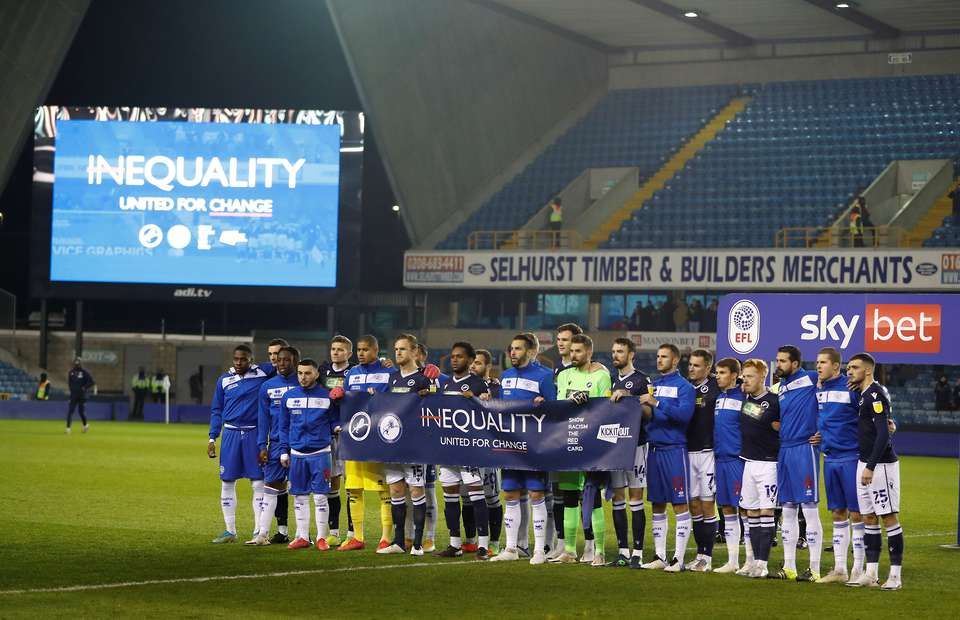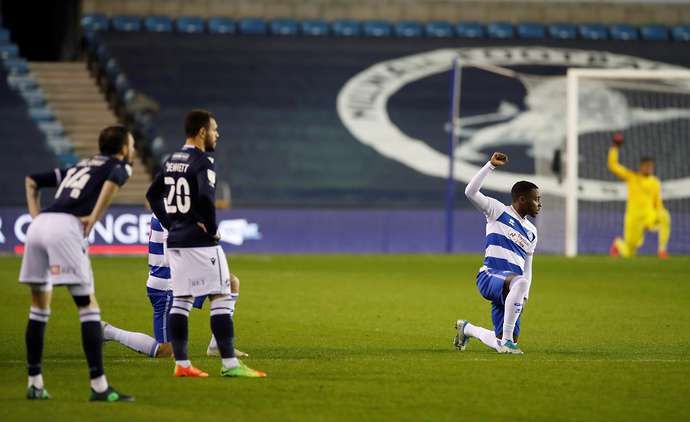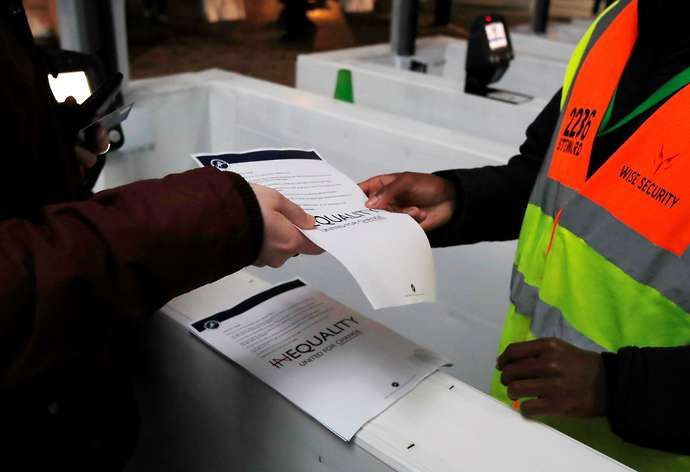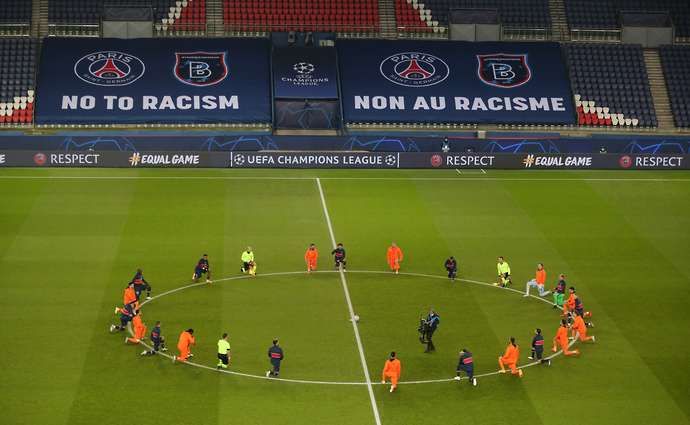High-profile incidents in football this week have highlighted just how much of a role social media plays in the game’s ongoing battle with racism.
Last season there were over 150 reported cases of football-related racist incidents. According to the Home Office, that’s a 50 per cent increase in racially-charged, physical or verbal abuse from the season before, a statistic that’s grown year-on-year since 2015-16.
That number stretches to 287 when examining reports of hate crime at matches — which include sexism, homophobia, ableism and religious discrimination — the equivalent of one incident every 10 games across England and Wales.
I list these stats not for dramatic effect, but to dispel any shred of belief that football, and by extension British society, does not have a problem with racism.
“The U.K.’s not racist” is something you often hear. It’s usually uttered with alarming assurance, too. But the facts are there for all to see. Getting the ignorant to educate themselves, however, remains a constant battle. Ignorance fuels fear, and fear fuels hatred.
This was evidenced last Saturday, when Millwall and Colchester fans booed their own players when taking the knee before kick off. Both clubs had expressed their reasoning for doing so: to send a clear message that football stands against racism and discrimination of any kind. Unfortunately, some fans chose not to listen.
They instead took to social media in their droves, doubling down on their decision to boo by arguing that taking a knee is a symbol of Black Lives Matter, which, in their minds, is inherently linked to a Marxist organisation that aims to abolish the very essence of society.
Aside from being woefully misinformed on the differences between BLM the movement and BLM the organisation, you get the impression these fans don’t want to fully understand the situation. To understand would mean accepting there’s a problem, and that’s an uncomfortable truth many prefer to sweep under the carpet.
A lot of this ignorance is fuelled by social media itself. Platforms like Facebook and Twitter are designed to increase partisanship and are monetised by pushing their users to the fringes. If you express an interest in a certain way of thinking, its algorithm will see just how far it can take your school of thought.
This is also the main reason for the rise of far-right populism in society. People feel emboldened by their social circles — an online echo chamber facilitated by social media — and take their warped beliefs into real-world settings, spouting misinformation and damaging rhetoric.
I wonder if many who booed fully comprehend the history and ideology of Marxism. It’s easy to envisage a scenario where they’ve peddled their national pride online, which algorithmically returned a plethora of war time content — harking back to an ostensibly golden era, where Britain reigned supreme.
That’s amplified further by seeing modern day footage of the U.S. in ruins: rioting, looting, burning buildings. It forges a direct correlation in people’s mind between BLM and anarchy, which eventually translates into them booing a football team for kneeling, thinking they are somehow ‘opposing politics in sport’ or ‘defending British values’.
If anything, the real-world booing and online opposition to football’s anti-racism campaigns only further strengthens its need to double down on them. But this will always be an uphill battle as social media continues to encourage split opinion.
The game’s governing bodies — FIFA, UEFA, The FA, PFA and Premier League — must come together and open talks with social platforms about the dangers of allowing hateful ideologies to fester online.
That’s not to say social media is the only barrier football faces when striving for equality, though, far from it. You only have to look at the midweek postponement of Paris Saint-Germain vs İstanbul Başakşehir in the Champions League to see how systemic and deep-rooted the problem is.
Following the alleged racist incident, the chairman of PSG, Nasser Al-Khelaifi, gave Başakşehir’s assistant manager Pierre Webo a shirt to offer his condolences. That a man attached to Qatar, a nation demonstrating an abhorrent human rights record, can smooth over racism with a quick PR stunt is deeply troubling.
Another poignant point to raise is the comments made by the fourth official who supposedly committed the offence, Constantin Coltescu. He has since remarked: “Anyone who knows me knows that I am not racist.”
The idea you have to be overtly racist to commit a racist action is simply untrue. Anyone can unwittingly say or do something racist; the important thing is to then acknowledge the mistake, apologise, educate yourself, and continue to grow. The danger arises when your social media bubble reassures you that you’ve done nothing wrong.
Online polarisation creates a much broader issue than those in football, and impacts almost every facet of major debate, from climate change to the ongoing global pandemic. But until football gets an ounce of control over the spread of harmful beliefs born out of fabricated information, it will never truly be able to tackle racism.
In an age of extremities, football’s tribalism, coupled with social media partisanship, only serves to accentuate the prevalence of division and discrimination. The hope now is that the two can work together as a force for good, finding a solution to the problem and drive positive, meaningful change.






















